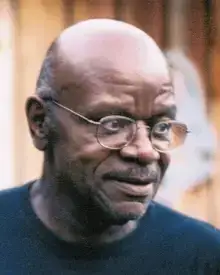
The Dr. Ralph R. Watkins Hub for Social Justice was established in 2011 (Fitzelle 417) by the Africana & Latinx Studies Department to advance projects for social justice on the SUNY Oneonta campus, to support the new minor in Social Justice Studies the department initiated, and to advocate for social justice, locally and globally.
The ALS Department for several years prior had encouraged students to become involved in social justice projects such as interning at the Oneonta Jobs Corps or the NAACP, volunteering through the Center for Volunteerism and Community Engagement or working on “Learn and Serve in Ghana” efforts, e.g., a community library in Kwabeng, Eastern Region, constructing a village clinic at Quigbey, Volta Region. In 2008 some Ghana program “alumni” students and then Chair, Dr. O’Mara, supported the creation of a new student organization, Students for Global Education which became active in raising funds in support of community projects in Africa (Ghana and Sudan).
Due to student interest, the department then constructed a minor in Social Justice Studies. In 2013 we have opened the Social Justice Incubator (Milne 305) to enhance student, faculty, and community collaboration through small group research projects.
Social Justice Incubator
In this era of rapid change which continues to be marked by social and economic inequality within our state and nation and within our shrinking, globalized world, people everywhere wonder what can they do to advance justice, equality and address problems whether local or global. People of good will, especially youth do care and do have the energy to tackle many issues. The VISION of the Social Justice Incubator is to bring students, faculty and professionals together in small interdisciplinary teams to brainstorm and problem solve an issue of mutual interest. Through problem solving and action we honor the memory of Dr. Ralph R. Watkins (1943-2007) after whom our Social Justice Hub is named, a colleague who deeply believed that community is both the people and the place that nurtures knowledge and a multiplicity of perspectives in the practice of change. We, too, believe that our students and youth generally want to contribute to making our world a better one. Analogous to entrepreneurial incubators which support the development of new products or services ‘for profit,’ the Social Justice Incubator encourages the development of new approaches to understanding and tackling issues of injustice in the broadest sense.
If interested contact the Department of Africana and Latinx Studies at 607 436-3449 or any ALS faculty member.
Contact the Africana & Latinx Studies Department
Fitzelle 270
108 Ravine Parkway
Oneonta, NY 13820
United States